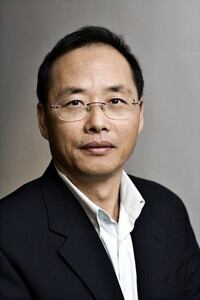Dietary supplements, dairy and bakery will be three priorities for DuPont’s health and nutrition division in 2017.

With the controversial merger with Dow due to completed next year [more of which in the first part of our interview with Dr Li here] the firm has pledged to invest more in all three sectors across the ASEAN region.
According to Li, DuPont’s new regional HQ in Singapore has already started working on new solutions, with more staff due to join the fold in the coming months to boost its R&D and customer service capabilities.
“In 2017 we will have a strong focus on dietary supplements, bakery and dairy,” he said during an interview at Fi Asia in Jakarta.
“We believe with more resource in this area our partners can get more knowledge, more concepts and more products so the growth [across the region] can be even faster.”
“The Singapore HQ has already started working on a lot of projects. We have already completely utilised the whole facility and will actually invest further. We will hire more people and buy more equipment so that facility can have an even bigger role.”
In terms of dietary supplements, the market is booming for DuPont in China, New Zealand and Australia, as well as the US.
The next challenge, says Dr Li, is to take the industry mainstream in South East Asia.
“Although today the actual number in the ASEAN region is not huge, it is ready to grow and we are ready for that.
“We can make the products ready for launch and have the scientific literature ready to help makes claims. Our partner only needs to worry about what they want on the label and come up with the marketing concept.
“Premium consumers in ASEAN countries are already buying supplements and now we are waiting for the [mainstream] momentum. The fundamental line from the industry needs to be that these products are good for consumers and works together with academia to show this.”
Early investment
Dr Li also believes that there is great potential for probiotics to expand out of its core base of Japan and China and hit the mass market more in emerging South East Asia countries.
In 2013 the firm launched production at a new probiotic blending and packaging facility in China. The new site in Beijing represented the company’s first Asia step in packaging probiotics into ready-to-market formats.
“We are now benefiting from that investment,” said Dr Li. “A lot of people now understand probiotics in China so the momentum is coming and people understand the benefits.
“In the ASEAN region we have to work together as an industry because I don’t think the scale is quite there yet. In the next few years we will invest in the communication with our partners to send this message to consumers. Together we can create this momentum.”
Just last week a report from Future Market Insights forecasted the probiotics would be the fastest growing functional foods sector in the next decade, with growth outstripping the wider market.
“The responsibility is on us, as a science company, to show how the products will benefit them from a solid science background,” he added.
Dr Li also reflected on the many regulatory changes the supplements industry is facing in China following on from the country’s 2015 Food Safety Law, several of which are still being implanted.
“In the long term, this is very good news for the industry. It will mean people follow the rules and people will not make mis-claims. As an industry, we need to behave very well when it comes to claims and any company that invests in science will have a good future,” he said.
On a wider business level, he added his priorities for 2017 were to continue double-digit growth, invest more in the Singapore HQ, and further develop the technical expertise to take global solutions and tailor them specifically for the Asia market.

